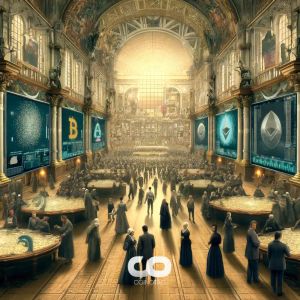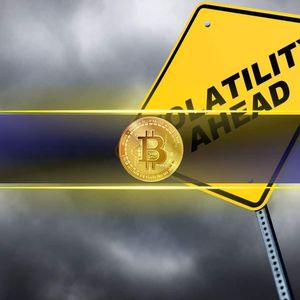In the ever-heated debate over the decentralization of major blockchain networks, David Schwartz has once again stepped forward to provide clarity . Schwartz, the Chief Technology Officer of Ripple and one of the original architects of the XRP Ledger (XRPL), recently took to X to address persistent misconceptions surrounding XRP, Ripple, and the decentralization of the XRPL ecosystem. Schwartz’s comments were direct and precise. He reminded the crypto community that Ripple, the private company he helps lead, did not issue XRP. All the XRP that will ever exist was created when the XRP Ledger itself was launched. Unlike networks such as Ethereum or Solana, where tokens can be minted or burned post-launch, XRPL’s total supply was locked from the very beginning. This unique feature of XRP sharply distinguishes it from many other crypto projects and makes discussions about “issuers” largely irrelevant. Garlinghouse is the CEO of Ripple, a company. XRP has no issuer — all the XRP that will ever exist was created when the ledger was created. Unlike most other blockchains, XRPL has no rivalrous features, so the ledger itself can't really do the initial distribution beyond letting… — David 'JoelKatz' Schwartz (@JoelKatz) May 27, 2025 XRP’s Distribution Model Schwartz emphasized a critical point often missed in public debates: XRPL, by design, cannot perform the initial distribution of XRP. While most blockchains incorporate mechanisms to release or distribute native tokens over time (such as mining, staking rewards, or emissions), the XRP Ledger was created without such rivalrous mechanisms. As Schwartz put it, the ledger itself essentially allowed anyone interested to take as much XRP as they wanted at inception — a situation fundamentally different from Bitcoin’s or Ethereum’s more gradual distribution models. This clarification strikes at the heart of the confusion over whether XRP is inherently centralized due to Ripple’s large holdings. Critics often point to Ripple’s corporate ownership of a significant share of XRP as evidence of centralization. However, Schwartz’s comments underline the importance of distinguishing between the company Ripple and the open-source XRP Ledger, a distinction that is frequently blurred in popular discourse. Ripple is one actor within a broader ecosystem; the XRP Ledger operates independently, maintained by a decentralized network of validators, many of whom are unaffiliated with Ripple. What Does Decentralization Mean? Perhaps the most profound part of Schwartz’s statement came when he challenged the community to rethink the very meaning of decentralization. Rather than getting bogged down in rigid definitions, Schwartz suggested users reflect on why they care about decentralization in the first place. He urged people to ask: What guarantees do I want from the system? What outcomes do I want to ensure, and what risks do I want to avoid? This approach refocuses the decentralization debate away from abstract technical arguments and toward practical outcomes. Are users worried about censorship? About a single party controlling the network’s evolution? About resilience against failures? Schwartz’s point is that the meaningful measure of decentralization lies not in labels or checklists, but in understanding the safeguards that prevent undesirable outcomes and ensure desired ones. In the case of XRPL, that means examining how decisions are made, who participates in governance, and how power is distributed across the network, not simply how many tokens Ripple holds. Ripple’s Place in the Broader XRPL Ecosystem Ripple, as a company, has undoubtedly played a massive role in advancing the adoption and development of XRPL technology. Through enterprise products, partnerships with financial institutions, and ecosystem investments, Ripple has positioned itself as a major stakeholder. But Schwartz’s clarification reiterates that Ripple’s influence does not equate to direct control over the ledger itself. We are on twitter, follow us to connect with us :- @TimesTabloid1 — TimesTabloid (@TimesTabloid1) July 15, 2023 The XRP Ledger operates through a consensus mechanism that involves independent validators. Many of these validators are universities, exchanges, and individual community members. Ripple runs a minority of these validators, meaning it cannot unilaterally make changes to the network. This stands in contrast to the centralized architectures of some newer blockchain projects, where a founding team or foundation wields disproportionate power over governance. Furthermore, the XRPL community has made continuous progress toward increasing the resilience and diversity of its validator ecosystem. Initiatives to onboard more independent validators, improve transparency, and bolster decentralized governance have been ongoing, all aiming to ensure that no single entity, including Ripple, can dominate the system. David Schwartz’s latest post offers an important reality check for anyone engaging in the ongoing debates over XRP’s status and the nature of the XRPL. By breaking down key distinctions — between Ripple and the ledger, between token supply and issuance, between theoretical and practical decentralization — Schwartz continues to play an essential role in educating the crypto community. The next time the question of “XRP centralization” arises, it’s worth remembering Schwartz’s advice: focus less on rigid definitions and more on what matters — the outcomes the system can guarantee, the risks it mitigates, and the mechanisms that make it resilient. In the ever-evolving world of blockchain, clarity is rare, but thanks to voices like Schwartz’s, the conversation moves forward with a stronger foundation. Disclaimer : This content is meant to inform and should not be considered financial advice. The views expressed in this article may include the author’s personal opinions and do not represent Times Tabloid’s opinion. Readers are urged to do in-depth research before making any investment decisions. Any action taken by the reader is strictly at their own risk. Times Tabloid is not responsible for any financial losses. Follow us on Twitter , Facebook , Telegram , and Google News The post XRP Centralized? Ripple CTO Makes Strong Clarification appeared first on Times Tabloid .



















